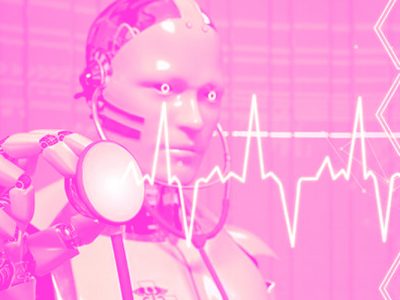
International Men’s Health Week is an excellent opportunity for all men to consider their health.
International Men’s Health Week is observed in several countries during the week leading up to and including Father’s Day. The main goal of this health campaign’s annual celebration is to increase awareness of preventable health issues (both physical and emotional) among men and boys, as well as to encourage early disease detection and treatment. This year’s Men’s Health Week will take place from June 10 to 16. This is a great time for all males to think about their health.
SugarBEAT for Diabetes
Diabetes is a condition in which blood glucose levels in the body grow to dangerously high levels. Diabetes affects more than 60 million people throughout the world. SugarBEAT’s newest continuous glucose monitor has received the CE Mark, which is required to sell medical equipment in Europe. In glucose monitoring, a wearable sensor created by Nemaura Medical, a medical technology firm, eliminates the need for needles. The gadget, which consists of a disposable patch that can be applied to various parts of the body, uses an undetectable electric current to pull tissue fluid from the skin.
Sensely
You’ve always wanted a private-duty nurse, right? So, the next time you undergo surgery, you could get a call from Molly, a virtual health assistant who will follow up with you at home. The avatar may examine symptoms, gather data from medical equipment and wearables, and schedule follow-up visits. You don’t have to enter anything because when you chat with Molly, all of your information is instantly transferred to your medical file for your doctor to review. People who are fed up with the difficulties of traditional follow-up care or who need to keep an eye on a chronic illness.
Flow’s headset for depression and suicide
Suicide rates in the United States have reached their highest point, with significant increases among boys and men. The number of suicides among people aged 15 to 24 increased to 6,252 in 2017 with men accounting for the majority of the deaths. A wearable treatment for people with depression has been launched by Flow Neuroscience, a Swedish medical device business. The Flow headgear delivers low-level direct brain stimulation to the user’s left frontal lobe continuously. By adjusting that activity, Flow expects to achieve similar outcomes to existing antidepressant drugs with fewer side effects.
Woebot
Wary of therapy? Not into talking about your mental health? This chatbot, created by Stanford clinical research psychologist Alison Darcy, Ph.D., uses brief daily conversations, mood graphing, uplifting videos, and word games via Facebook’s Messenger to monitor your mood and help you learn about yourself. Over time, Woebot learns what you respond to best, and its reactions become more specific. In a 2017 study, users saw significant reductions in depression and anxiety symptoms after two weeks and an average of 12 sessions using Woebot.
Theranostics for prostate cancer
Because prostate cancer develops slowly, there may be no symptoms for years, making early identification difficult. GenesisCare’s Theranostics technology offers a customized approach to therapy and detection in late-stage prostate cancer and neuroendocrine tumors, such as head and neck malignancies. Ultrasound imaging has typically guided the treatment, although this approach cannot indicate the location of malignancies in the prostate gland. The most recent annual study from the National Cancer Institute, which looked at cancer in men and women aged 20 to 49, found that males had a 1.2 times higher total cancer incidence rate than women. By utilizing a radioactive tracer that is specific to receptors located on the surface of cancer cells, the gadget combines two procedures in one: diagnostic (imaging) and treatment.
AiCure
Missed prescription medication dosages might obstruct healing and potentially put your life in jeopardy. AiCure employs artificial intelligence (AI) with a smartphone camera to visually check that the medicine was swallowed. This professionally supported software validates the medicine kind (based on its shape and color) and intake after verifying the patient’s identification using face recognition and then transmits the information to a doctor. It also delivers medicine reminders regularly. Those who are tremendously busy, hopelessly absent-minded, and especially those who are far away from their elderly parents.
iLFT for Liver diseases
Cirrhosis is a long-term chronic liver disease caused by alcohol and viral hepatitis B and C. It develops when scar tissue replaces healthy liver tissue and prevents it from working properly. Liver cancer has increased by nearly two-thirds in the United Kingdom during the last decade, and one in every three people has early-stage non-alcohol-related fatty liver disease. The more hazardous form, which can develop into cirrhosis, will most likely affect 20% of these people. The Intelligent Liver Function Test (iLFT) was developed by a team of scientists from the University of Dundee in Scotland and NHS Tayside, and it has resulted in a 43 percent increase in the diagnosis of liver disease before it becomes fatal.
Semantic Scholar
Forget Google when you’ve been handed a life-altering diagnosis and need to learn about treatment choices. This AI-powered search engine scours a database of over 40 million peer-reviewed research for the most referenced and relevant findings, then connects them based on their efficacy. Its longterm objective is to use artificial intelligence to draw the connections between research and find therapies that would otherwise go unnoticed.
ARTAS Robotic hair surgery
Existing hair transplant procedures might be time-consuming: Hairs are collected by hand from a donor location on your head and put in bald or thinning areas. This AI-powered robot aids surgeons in picking the finest hairs for harvesting and transplanting, resulting in a quicker recovery time and a more natural appearance. It is most effective for balding males.
Heart flow
Doctors are identifying heart illness with this noninvasive method that utilizes CT images, computer generated blood flow, and a deep learning algorithm to construct a 3D map of the heart instead of the dyes and catheters used in an angiogram. The thorough analysis of blockages and blood flow has been found to minimize the amount of unneeded invasive angiograms by more than 80%, potentially saving more than 25% in healthcare expenses. It also has a diagnostic accuracy of 86 percent (versus 65 percent for coronary CT angiography). It’s already available at 40 hospitals across the United States, with many more on the way.



















